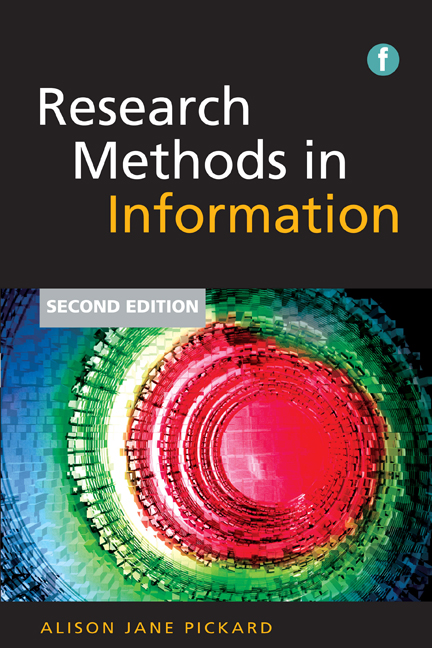Part 3 - Data collection techniques
Published online by Cambridge University Press: 08 June 2018
Summary
This section will deal with individual techniques for collecting empirical data. As I said in the opening section of this book, data collection techniques are not necessarily directly associated with specific research methods. Very often particular techniques for the collection of empirical data are presented as if they are synonymous with particular research methods, for example a questionnaire or a survey. I do not regard these as the same and hope that the distinction is made clear in this text. Your choice of research method does not necessarily restrict you to a particular technique for the collection of your empirical data, although sometimes this may be the case. This is usually because a particular technique is the most commonly applied, not because it is the only choice available. As I have pointed out in earlier chapters, research is a constantly evolving process; just because something has ‘always been done that way’ is not a good enough reason to continue doing it that way. We learn by trying and adapting what tools we have. I am going to discuss the most common of those tools here. How you apply them and in what context to choose to apply them is up to you within whatever constraints are imposed on you by academic or organizational requirements. Remember, success and failure in research are very tenuous concepts; finding out what does not work can be as useful as finding out what does.
Here is my understanding and interpretation of a selection of data collection techniques. Consider your research question, your research focus, your data sources and your own life experience and make your selection based on ‘best fit for purpose’. I would urge you to take the occasional risk and sometimes take the less common approach, but that does not mean I would want you to jeopardize the success of your research in an attempt to be overly adventurous. Weigh up your experience and your goals, seek advice from your supervisors or mentors then go out and collect your data in the most appropriate way for you. This can often be the most challenging element of the research process but in my opinion it is also the most exciting and rewarding. It is amazing what you see when you start looking.
- Type
- Chapter
- Information
- Research Methods in Information , pp. 189 - 194Publisher: FacetPrint publication year: 2013



